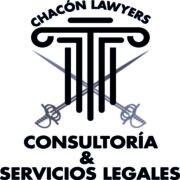Best Government Contract Lawyers in Colombia
Share your needs with us, get contacted by law firms.
Free. Takes 2 min.
Or refine your search by selecting a city:
List of the best lawyers in Colombia
About Government Contract Law in Colombia
Government Contract Law in Colombia governs the processes and regulations involved when the government, at any level, enters into agreements with private individuals or entities for goods, services, or works. The intricate framework is meant to ensure transparency, competitiveness, and fairness. This field of law is crucial as it involves significant economic interests and public service delivery. Key legislation includes the General Contracting Statute, which outlines the principles and procedures applicable to government contracts across the board.
Why You May Need a Lawyer
Legal advice in the field of Government Contract may be necessary in a variety of situations. If you are a business looking to bid on government projects, a lawyer can help you understand the complexities of the bidding process and ensure compliance with Colombian laws. Entities experiencing disputes with government agencies over contract terms, payments, or fulfillment may require legal representation. Additionally, navigating regulatory requirements, audit procedures, or seeking redress for governmental noncompliance are common situations where expert legal advice can be vital.
Local Laws Overview
In Colombia, Government Contract Law is framed primarily by Law 80 of 1993, the General Contracting Statute, which establishes the rules and regulations that public entities must follow. Other notable regulations include Law 1150 of 2007, which amends and adds flexibility to previous statutes by introducing new contracting mechanisms and transparency measures. The Anti-Corruption Statute further outlines penalties and procedures to deter and punish fraudulent activities in government contracts. Understanding these laws is crucial for parties looking to engage in government contracts, ensuring compliance from the proposal stage through contract execution.
Frequently Asked Questions
What is a government contract in Colombia?
A government contract in Colombia is a legal agreement between a public entity and a private individual or company, where the latter provides goods, services, or works to the government.
How can I participate in a government bidding process?
To participate, you must meet the eligibility criteria set by the contracting agency, submit a compliant proposal, and adhere to the procedures outlined in the specific bid documents and relevant law.
What are the common types of government contracts?
Common types include contracts for goods supply, construction works, consulting services, and concessions, each with its specific legal and procedural requirements.
Can a government contract be modified after signing?
Yes, modifications can occur due to unforeseen circumstances or mutual agreements, but they must comply with statutory regulations and maintain the balance of the original terms.
What happens in cases of contract disputes?
Disputes may be resolved through negotiation, arbitration, or Court litigation, following both the contract provisions and applicable legal frameworks.
Are there any preferential procurement policies for local businesses?
Yes, Colombian law sometimes gives preference or advantages to local businesses to promote economic development and regional industry competitiveness.
How long does the government contract process typically take?
The duration varies depending on the contract's nature, size, and complexity, typically involving several stages from advertisement to contract award.
How can I ensure compliance with regulations during contract execution?
Compliance can be assured by staying informed of legal changes, adhering strictly to contract terms, and employing proper management and reporting mechanisms.
What are the consequences of failing to fulfill a government contract?
Consequences may include contract termination, financial penalties, legal action, and potential blacklisting from future government contracting opportunities.
Can foreign companies bid on government contracts in Colombia?
Foreign entities can participate subject to legal stipulations, potentially needing a local partner or subsidiary, and must fully comply with Colombian bidding and contractual laws.
Additional Resources
For further information, individuals can consult the National Planning Department (Departamento Nacional de Planeación), the Colombian Procurement Agency (Colombia Compra Eficiente), or engage with the Colombian Chamber of Commerce, which provides resources and guidance on conducting business with the government. Professional organizations such as the Colombian Law Society offer valuable insights and updates on legal developments.
Next Steps
If you require legal assistance with government contracts, consider consulting a specialized attorney or law firm with expertise in Colombian Government Contract Law. Ensure they have experience handling similar cases and can guide you through legal documentation, compliance checks, and representation if disputes arise. Start by researching potential legal service providers, seeking recommendations, and scheduling consultations to discuss your specific needs and concerns.
Lawzana helps you find the best lawyers and law firms in Colombia through a curated and pre-screened list of qualified legal professionals. Our platform offers rankings and detailed profiles of attorneys and law firms, allowing you to compare based on practice areas, including Government Contract, experience, and client feedback.
Each profile includes a description of the firm's areas of practice, client reviews, team members and partners, year of establishment, spoken languages, office locations, contact information, social media presence, and any published articles or resources. Most firms on our platform speak English and are experienced in both local and international legal matters.
Get a quote from top-rated law firms in Colombia — quickly, securely, and without unnecessary hassle.
Disclaimer:
The information provided on this page is for general informational purposes only and does not constitute legal advice. While we strive to ensure the accuracy and relevance of the content, legal information may change over time, and interpretations of the law can vary. You should always consult with a qualified legal professional for advice specific to your situation.
We disclaim all liability for actions taken or not taken based on the content of this page. If you believe any information is incorrect or outdated, please contact us, and we will review and update it where appropriate.
Browse government contract law firms by city in Colombia
Refine your search by selecting a city.














